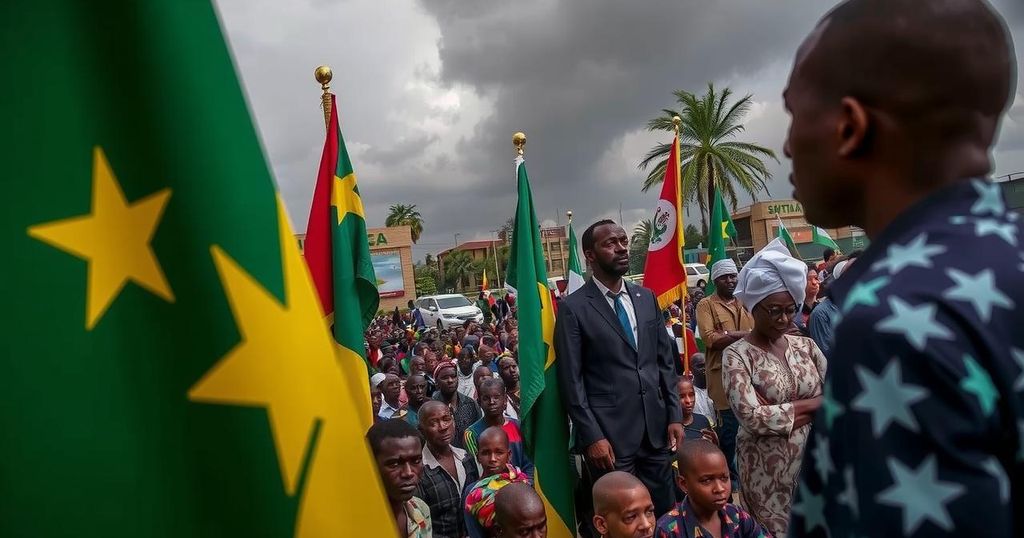Senegal’s tense electoral campaign reaches its final day before key legislative elections, determining the majority in the National Assembly for President Faye’s reform agenda. His party faces challenges from the opposition led by former President Sall amidst escalating violence and political unrest as the country seeks to maintain its democratic standing in West Africa.
Senegal has entered the final day of a fervent electoral campaign as voters prepare for a significant legislative election on Sunday that will shape the future of the nation. The elections will determine the composition of 165 lawmakers in the National Assembly, where President Bassirou Diomaye Faye’s party currently lacks a majority. Faye, who ascended to the presidency on an anti-establishment agenda, claims that this minority has hindered his ability to implement key reforms, including measures against corruption and adjustments to foreign fishing permits that affect the local economy. In September, President Faye dissolved the opposition-dominated parliament, setting the stage for a snap election. The upcoming vote will see his party contesting against the opposition coalition led by former President Macky Sall. As the election has unfolded, tensions have escalated, marked by sporadic confrontations among supporters of rival parties. Recent violence noted includes the arson of an opposition party’s headquarters in Dakar and violent skirmishes in central Senegal. Ousmane Sonko, the prime minister and crucial figure in Faye’s rise, condemned the attacks on his party’s supporters and asserted their right to respond. He later moderated his stance, calling for peace among supporters. Violent incidents, including an attack on Sonko’s vehicle, further underline the charged political atmosphere. The backdrop of the March presidential election, wherein both Faye and Sonko were released from prison following a political amnesty, cast serious doubts on Senegal’s democratic stability amidst the regional backdrop of coups and unrest. The unfolding situation is pivotal for determining not only local political dynamics but also the broader perception of Senegal’s commitment to democratic principles.
In recent years, Senegal has been challenged by political unrest, particularly as it grapples with issues surrounding governance and opposition dynamics. The March presidential election was a test of the country’s democratic resilience amid rising tensions and concerns over incumbent President Macky Sall’s political ambitions. The subsequent release of Faye and Sonko from imprisonment had significant implications for the political landscape, highlighting underlying grievances related to governance and civil rights. The upcoming legislative election is critical, as it may either empower the President’s reformist agenda or bolster opposition forces seeking to reclaim influence within the Assembly.
In summary, Senegal is at a crucial juncture as it prepares for legislative elections that may significantly influence the governance and reform processes under President Faye. The heightened political tension highlighted by violence and opposition retaliatory rhetoric poses serious questions about stability and democratic integrity. The outcome of the elections will be pivotal in determining whether President Faye can effectively navigate his proposed reforms or face further opposition challenges.
Original Source: apnews.com






